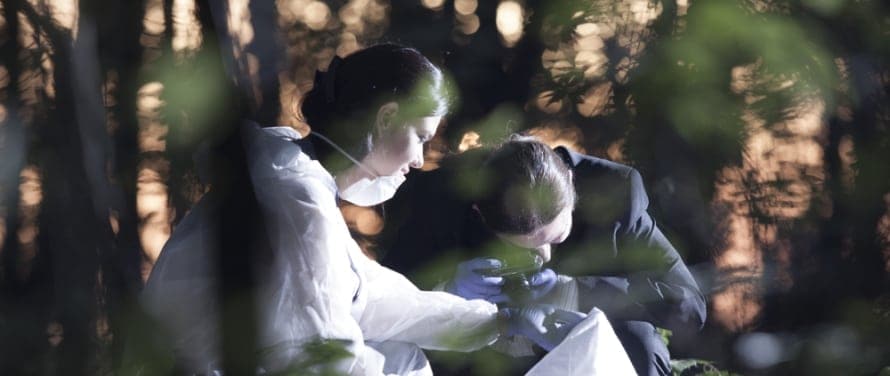

A completely green burial will soon be possible by donating your body to an Australian version of a so called Body Farm.
Body farms, in layman’s terms are open fields, wooded area’s, even indoor environments where bodies are left to decompose naturally with no human intervention so that they can be studied in an attempt to assist forensic investigators in understanding crime scenes and gathering data, but will also serve other purposes in understanding the body’s natural decomposition process.
The country’s first body farm, the Australian Facility for Taphonomic Experimental Research, is due to officially open early next year. It’s come about after an exhaustive search for the right patch of land and the right partners.
“It has to be a remote location but still accessible to police, to forensic investigators. It also needs the support of a university with a body donation program,” said Shari Forbes, a forensic chemist and the farm’s coordinator to The Telegraph.
Forbes can’t reveal the exact location but can say that it’s at the base of the Blue Mountains, west of Sydney.
Once a body goes to the farm it’s buried or partially covered with vegetation and left to decompose in an effort to mimic what police might see when recovering the remains of victim.
“Some of them may be placed on the surface, some may be placed in burials, there may be other concealed environments that we’ll mimic and then we’ll just start studying the decomposition process,” says Forbes.
The bodies are monitored on a daily, weekly, or monthly basis by a range of scientists including entomologists, archaeologists, biologists, and anthropologists.
As a forensic chemist, Forbes will be focusing on odours and trying to recreate the smell of decomposition in its various stages.
“The reason that’s important is that it’s that odour profile that cadaver detection dogs use to track and locate victim remains,” she says.
Up until now, Australian forensic experts have used pig carcasses or data collected in the US, but neither of those options is ideal.
“Simple information about how does our environment change the rate of decomposition … estimating time of death … and a lot of other factors, ecological and geological, are quite distinct here in Australia.”
Body farms also offer an ideal solution for those who want a ‘green’ burial.
“It’s something that I hear a lot from donors,” said Forbes.
‘They like the idea of it being an environmentally sustainable burial, and they like the idea of essentially just going back to nature.”
When it comes to sourcing bodies, the University of Technology Sydney has stepped in. Mohammed Shareef manages the university’s body donation program and says that while they’re not currently struggling to find donors, they’re always looking for more.
“Any body that can go out to the facility is a wonderful donation,” said Shareef, adding that, “The rate of decomposition and the rate of variation that you get from individuals is quite important for the study.’
However, not all donors will end up on the body farm.
“I actually have to look after all of the anatomical requirements for the university—at one end we’re nearing capacity and at the other end we could do with a few more,” says Shareef.